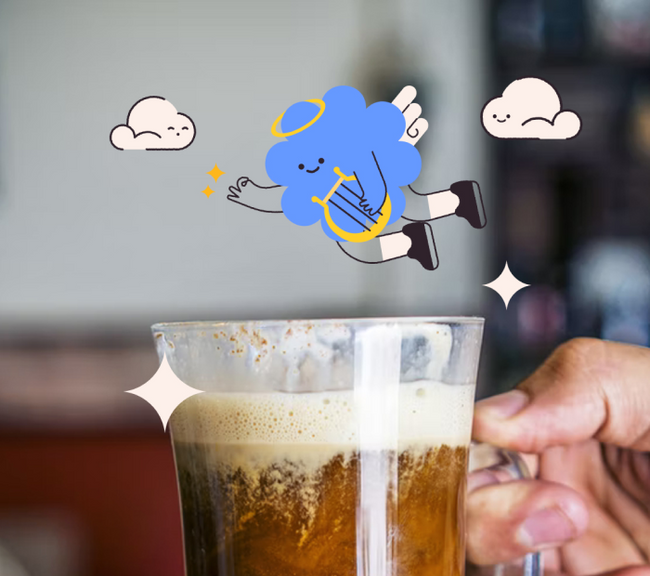Introduction
Coffee is often referred to as the elixir of life, the morning pick-me-up, and the fuel for everyday activities. However, what happens after a workout? I've heard it all when it comes to the argument over coffee and exercise. Some people think it's a match made in heaven, while others think it will end badly. So, what's the final word? Is drinking coffee post-workout beneficial? Let's investigate! Let's start by discussing what happens to our bodies during exercise. Glycogen, a type of glucose that is stored in the muscles and liver, is used up by our muscles when we exercise. Carbohydrates play a key role in this since they are our body's go-to fuel for intense activity. In order to aid in muscle recovery and preparation for the next session, we need to refill those glycogen reserves after a workout. But where does coffee fit into this?
Well, it turns out that adding coffee to our post-workout regimen can be beneficial.
Coffee contains caffeine, a stimulant that can increase mental clarity and lessen symptoms of exhaustion.
This is particularly useful if you're feeling exhausted after a strenuous workout. Moreover, research has shown that caffeine can enhance athletic performance by increasing endurance and reducing fatigue after workout. So, there's no need to give up on coffee entirely after your workout. You could even feel more energized and prepared for the day ahead after a cup of your favourite coffee.
5 Benefits of Coffee post Workout
Grab your favourite mug, and let's explore the top 5 advantages of coffee after exercise!

 1
1
Increases Energy and Mental Clarity
You could feel like you're out of gas after a challenging workout. Coffee can assist with this since it contains caffeine, which can raise mental alertness and energy levels. This makes it a wonderful pick-me-up for people who feel exhausted after exercise.
 2
2
Enhances Athletic Performance
While drinking coffee after working out won’t necessarily intensify the workout you just finished, it can positively contribute to your overall training regimen by aiding in recovery and optimizing subsequent workouts.


 3
3
Supports Muscle Recovery
Coffee can support muscular recovery following exercise in addition to giving you more energy. The antioxidants in coffee offer anti-inflammatory qualities that can help lessen muscular pain and inflammation, enabling you to recover more quickly and allowing you to bounce back faster and hit the gym again sooner.
 4
4
Improves Attention and Concentration
Coffee is popularly recognised for increasing mental clarity. Caffeine stimulates the central nervous system, enhancing cognitive performance and reducing fatigue. This is especially helpful if you feel mentally exhausted after your rigorous workout. You can stay alert and concentrated all day long after a cup of coffee.


 5
5
Supports Muscle Glycogen Replenishment
As we just said, carbohydrates are crucial for refuelling muscle glycogen and accelerating recovery from exercise. While research has shown that caffeine doesn't significantly affect glycogen replenishment, it can affect the body's capacity to absorb and use nutrients. Therefore, you may still enjoy your coffee without worrying about preventing your recovery if you're concerned about obtaining enough carbohydrates after working out.
Which & How Much Coffee is Good?

Now that we are aware of the advantages of drinking coffee after working out, the questions remain- how much is too much, and what type of coffee is best to consume? The following considerations should be made while selecting the ideal coffee and serving size for you:
- Drink Black Coffee: Fewer additives are better for your health when it comes to coffee. Black coffee is the way to go if you can stomach the flavor. Sugar, cream, or other flavourings can add calories and counteract some of the coffee's health advantages.
- Opt for Quality: Any coffee can do in a hurry, but higher-quality coffee has more health advantages than cheaper varieties. Look for beans that are fair trade, organic, and perfectly roasted. Protein Coffee is an option to consider for this purpose.
- Mind your Portions: Coffee should only be consumed in moderation. There is no specific amount of coffee you may consume, although most experts advise limiting yourself to two to three cups daily. Anything above that might cause nervousness, anxiety, and sleep issues.
- Pay Attention to your Body: Everyone's body responds to coffee in a different way. Some people can drink numerous cups of coffee without any problems, yet with only one, some people may feel restless or uncomfortable. Observe how your body reacts to coffee and change your consumption accordingly.

Boost Energy. Boost Focus. Boost Muscle.
Buy Protein Coffee - Risk Free
Boost Energy. Boost Focus. Boost Muscle.
Buy Protein Coffee - Risk FreeHow long to wait to drink Coffee after Working Out?
The timing of drinking coffee after your workout particularly depends on an individual's preferences and various other factors.
- Caffeine Absorption in the Body: It takes approx 45 mins for caffeine to enter your bloodstream. You may want to wait at least 30-60 mins after your workout to experience the energizing effect of caffeine.
- Nutrition after Exercise: It is important to prioritize your body’s nutrients needs before restoring its energy reserves. Consuming a balanced meal or snack that includes a source of carbohydrate, protein and caffeine during the first 30-60 mins after your workout.
- Personal Preferences & Genetics: Different people may react differently to caffeine based on factors like genetics, metabolism, and tolerance. It is important to pay attention to your body’s signals and modify the timings to suit your comfort levels and preferences.


Precautions to Lookout for


There are also some precautions that we need to take care of. Caffeine can increase energy and alertness, but too much of it can leave you restless, agitated, and cause sleep disturbances. It is advised to drink up to 400 milligrams of caffeine each day, which is roughly equivalent to 3-4 cups of coffee. It is also important to consider the potential dehydration effects of coffee. Coffee is diuretic in nature, meaning it can increase urine production and lead to dehydration if consumed excessively.




































